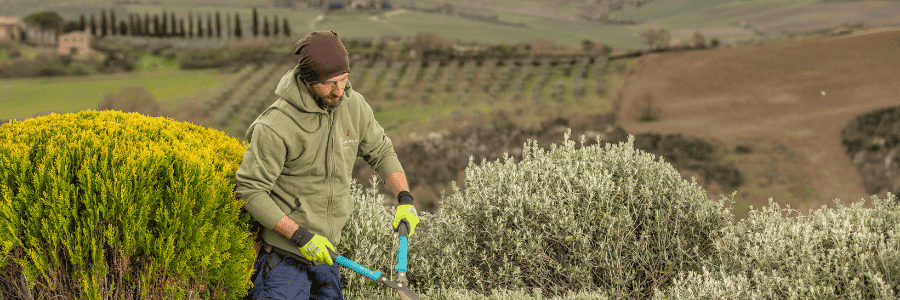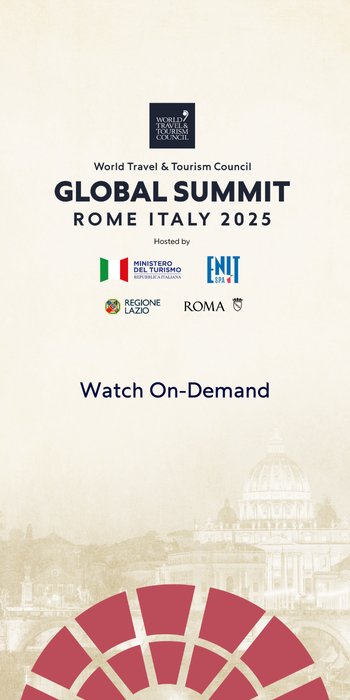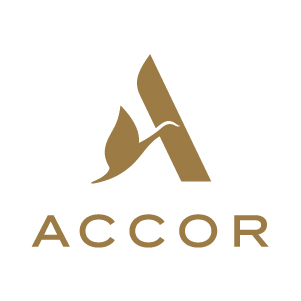Lupaia: How a 1622 farmhouse became a luxury boutique icon

Some dreams start as a whisper. For Heidi and Christopher Mueller, it was the quiet, persistent voice of Tuscany calling them away from their corporate lives in Austria and Switzerland. In 2015, they answered, finding themselves standing before a centuries-old farmhouse from 1622, nestled in the rolling hills between Montepulciano and Pienza. It was love at first sight. Not the polished, staged kind, but the raw, real kind, the kind where you see the cracks, the weathered walls, and imagine all the life they’ve held.
Sign in to access actionable insights
Some dreams start as a whisper. For Heidi and Christopher Mueller, it was the quiet, persistent voice of Tuscany calling them away from their corporate lives in Austria and Switzerland. In 2015, they answered, finding themselves standing before a centuries-old farmhouse from 1622, nestled in the rolling hills between Montepulciano and Pienza. It was love at first sight. Not the polished, staged kind, but the raw, real kind, the kind where you see the cracks, the weathered walls, and imagine all the life they’ve held.
“We wanted a life where hospitality and authenticity merge. A boutique retreat that feels like a friend’s Tuscan country home, personal, intimate, and luxurious without pretension. The most important factor was bringing together a wonderful team of now over 30 people who share our idea of perfect service and love for hospitality,” says Heidi, who runs the property together with her husband Christopher, and they live on site.
That vision became Lupaia, a hideaway where the smell of freshly baked bread drifts from the kitchen, antique wood floors creak under your feet, and every detail, from hand-made ceramic plates to the evening’s menu, tells a story rooted in the land.
At Lupaia, luxury is about intimacy, flexibility, and a deep sense of place. “We treat guests like friends. There are no rigid mealtimes, no cookie-cutter itineraries. Instead, there’s the freedom to linger over breakfast on the terrace, wander into the kitchen to chat with the chef, or spend an afternoon curled up in the library,” Heidi explains.
The interiors are an ode to Tuscany, reclaimed wood beams, stone walls, antique market finds, and neutral, earthy tones. The luxury lies in the detail and the quietness, as each room is historic and deeply comfortable.
Built by community, for community
Lupaia’s heart beats in sync with the small and medium enterprises (SMEs) of the region, the farmers, artisans, winemakers, and dairy farms whose livelihoods are woven into the guest experience.
Chef Luca designs menus dictated by the seasons, drawing from Lupaia’s own vegetable garden, olive groves, and a tight-knit network of local suppliers. There’s flour from a nearby mill, cheese from Pienza’s dairies, coffee roasted in Sinalunga, and meat from local butchers. Even the cola and vermouth come from just down the road.
It’s a philosophy of freshness and footprint. By sourcing nearby, they cut transport emissions and keep local traditions alive. Guests are encouraged to meet these suppliers through Lupaia’s guidebook, creating a ripple effect that benefits the wider community.
Some collaborations have become part of Lupaia’s very identity, like the Montefollonico ceramics studio, which co-created a line of tableware exclusively for the hotel. These handcrafted pieces are conversation starters, vessels for regional history, and tangible reminders of place.
There’s also the beekeeper who invites guests to learn about honey production, the organic winemakers crafting natural vintages, and the artisans shaping copper, stone, and wood. Each partnership adds layers to the guest experience, grounding it in the rhythms of Tuscan life.
Technology with a human hand
In an age of automation, Lupaia keeps technology personal. Social media isn’t outsourced; it’s managed by Heidi and Christopher themselves. Direct bookings are followed by one-on-one communication, often via a WhatsApp concierge service that can arrange everything from truffle hunts to extra towels.
Yet, analogue charm remains non-negotiable. Guests still receive handwritten welcome notes, printed guides, and tangible mementos. These are invitations to slow down in a digital world.
At Lupaia, storytelling is the bridge between hyper-local roots and a global audience. Every element is deeply tied to the Tuscan setting, but the website, social media, and guest interactions carry that sense of place beyond the borders. “Designed as an invitation rather than a transaction, our digital presence mirrors the artisanal, soulful, and quietly luxurious essence of Lupaia. Through Instagram, we share real-time rhythms such as the day’s harvest, the chef’s creations, and the golden light at sunset, offering intimate glimpses that help guests feel connected to Lupaia long before they arrive,” shares Heidi.
More than 60% of Lupaia’s energy is eco-generated. Ancient wells irrigate the gardens, e-bikes and EV charging stations encourage green travel, and à la carte breakfasts replace wasteful buffets. Bathroom amenities come in reusable ceramic containers, and the estate’s free-range chickens roam happily under the Tuscan sun. “Sustainability isn’t an add-on here. It’s part of how we live,” says Heidi.
Running Lupaia has been a masterclass in adaptability. From global disruptions to shifting guest expectations, the Muellers have stayed true to their identity while embracing change. “The key is listening to our guests, to our team, to the land. During hard times, their local network became not just an operational lifeline but an emotional anchor,” Heidi reflects.
And when guests say, “See you next year,” it’s more than a farewell. It’s proof that Lupaia has become part of their life’s rhythm.
Shaping the future of boutique travel
The Muellers see a shift in travel trends with slower stays, deeper connections, and curiosity about the origins of food, design, and culture. Lupaia has been ahead of this curve for years, offering curated experiences that immerse guests in Tuscan life, such as wine tastings, cooking classes, and garden tours. They’re shaping trends quietly, by staying small, local, and authentic. “If you believe in what you’re creating, don’t wait too long. Courage fades if you let it,” Heidi advises other boutique hoteliers.
Lupaia is a living, breathing dialogue between past and present, between host and guest, between land and table. In a world racing toward the next big thing, it’s a reminder that sometimes the most radical luxury is simply slowing down, long enough to feel rooted in a place, even if just for a while. Because when the suitcase is unpacked and the road calls you away, the truest measure of a place is whether it calls you back. And Lupaia always does.

















